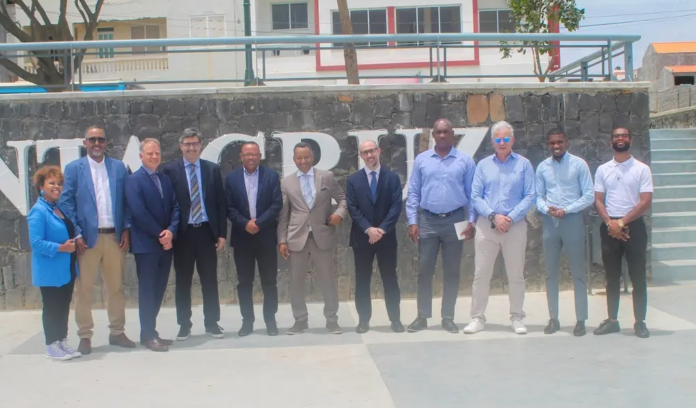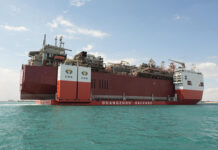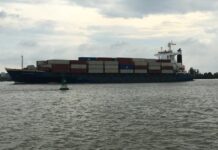
HPC Hamburg Port Consulting (HPC) has successfully delivered a pre-feasibility study for the development of a bulk cargo terminal at Porto Fundo in Santa Cruz, Cabo Verde.
Commissioned by Spanish infrastructure company COPISA, the study provides a foundation for assessing the viability of a new terminal on the island of Santiago and sets the course for further investment planning.
Located on Cabo Verde’s largest and most populous island, Santiago, Porto Fundo is strategically positioned to serve the country’s key agricultural region and half of its population. As part of the Sotavento Islands, Santiago also plays an important historical and logistical role within the archipelago, lying between the islands of Maio and Fogo and home to the nation’s capital, Praia.
In its assessment, HPC analysed the market potential of a new bulk terminal, considering the competitive landscape, proposed cargo mix, investment and operational costs, and price positioning. Building on this foundation, HPC developed a terminal operations and layout concept, complemented by a financial analysis to support the next stage of planning and investor engagement.
The study is intended to serve as a business case for attracting financing from various sources, including multilateral and development finance institutions, and to initiate a detailed feasibility phase.
COPISA, which intends to construct the terminal and secure financing in collaboration with AFRICOM, a Mauritanian investment company, engaged HPC to deliver the independent assessment as a first step. A local subsidiary has already been established to manage port construction and the implementation of operations.
“This project responds to the growing need for efficient port infrastructure to support the economic development of Cabo Verde. By improving bulk handling capacity, the terminal at Porto Fundo can strengthen local supply chains, reduce import costs, and contribute to the country’s long-term growth with new export opportunities. The terminal will also provide capacity for the regional transhipment of grain and hydrocarbons and, in the future, hydrogen products. The pre-feasibility study lays the groundwork for turning this vision into a concrete investment opportunity,” commented José Manuel Valero Pérez, Managing Director of COPISA Cabo Verde.
The final report includes detailed market demand projections, confirming a long-term need for dry and liquid bulk handling capacity in Cabo Verde. In response to project-specific requirements, the terminal design was refined to accommodate the handling of hydrocarbons, ensuring alignment with anticipated cargo flows and operational needs.
“The future bulk terminal at Porto Fundo will be more than a logistics asset – it will open up new business opportunities for Cape Verde and make the islands an important maritime hub on the West African coast,” said Dr. Martin Schramm, the responsible Project Manager at HPC. “By localising key cargo handling capacities, Cabo Verde can reduce dependency on transshipment routes, stabilise supply chains for essential goods like construction materials or grain, and strengthen its economic autonomy. Our study shows that with targeted investment, this vision is well within reach.”
In early April, representatives from HPC, COPISA, AFRICOM, and other stakeholders met with the government of Cabo Verde to present the results of the study. The project received full political support, and the process for establishing a public-private joint venture to realise the port development was initiated. As a first step, COPISA, AFRICOM, and the municipality of Santa Cruz signed initial documents formalising their collaboration.
HPC said it will continue to support the project’s advancement through future planning and implementation phases.





